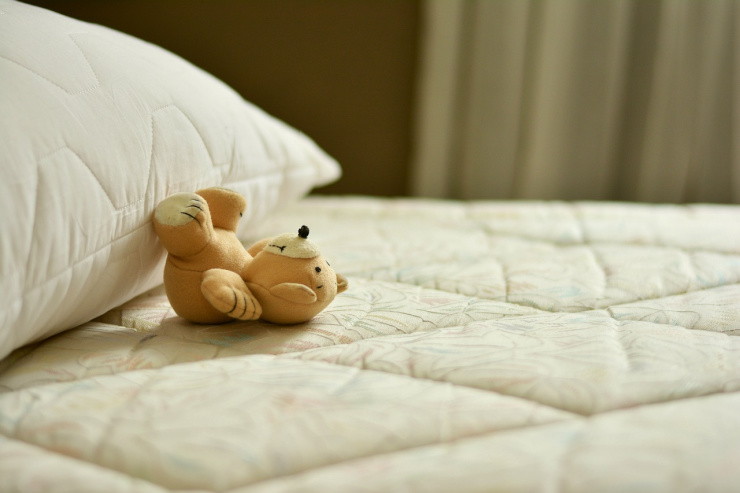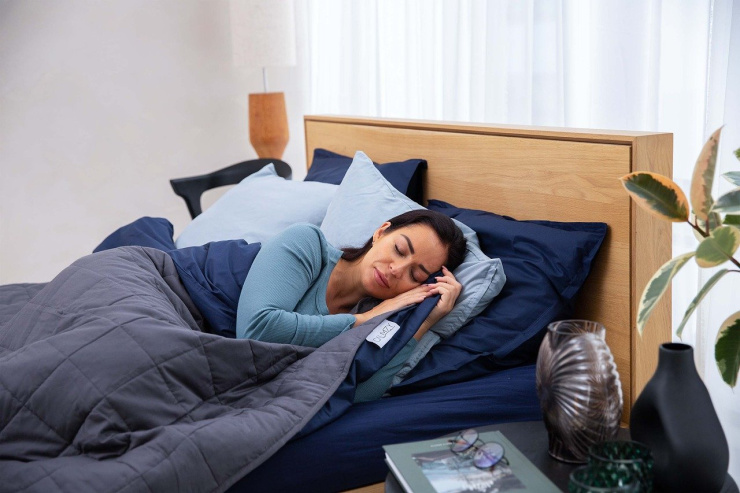The menopause can be a difficult time in a woman’s life, bringing about hormonal changes that can impact various aspects of health, including sleep. The delights of menopause can include hot flushes, night sweats, mood swings and physical aches and pains that can disrupt sleep patterns and leave you feeling exhausted.
It can be very difficult to get a good night’s sleep. I know about this personally as I am currently going through this. Difficulty getting off to sleep or waking up and worrying about life, as well as night sweats can all make you feel irritable and tired the next day. However, there are things you can do. Let’s look at the practical steps you can take to get a good night’s sleep during the menopause.
Understanding Menopause and Sleep Disturbances
Everyone thinks that menopause typically occurs in women between the ages of 45 and 55, marking the end of menstruation and fertility, however, menopause can happen naturally earlier than this or if a woman has had a hysterectomy. During this time, the body undergoes hormonal changes and a decline in estrogen and progesterone levels. These hormonal changes can have a profound effect on sleep, leading to symptoms such as:-
- Night sweats
- Insomnia
- Anxiety
- Changes in sleep
In fact, these symptoms are also common in the lead-up to menopause, referred to as perimenopause.
Practical Tips for Better Sleep During Menopause
While menopausal sleep problems can be challenging, healthy sleep habits and lifestyle changes can significantly improve sleep quality and overall well-being.
Here are some practical tips to help women get a better night’s sleep through perimenopause and menopause.
Invest In A Good Mattress

A good mattress is a must to get the best night’s sleep. Find one that will support your body and take into consideration your general sleeping position. You can get mattresses now designed to regulate your body temperature with ThermoSync Technology. This is definitely worth investing in if you suffer from hot flushes and night sweats. Also, consider a good supportive pillow for your neck and spine too. These can really help with gaining a restful night’s sleep.
Consider A Cooling Blanket And Fan
A cooling weighted blanket can be fantastic in the warm weather or to keep you cool when you get night sweats. Cooling weighted blankets are said to help you fall asleep quickly and also soothe anxiety, and the cooling technology will keep you comfortable in the night. A fan is also a useful addition to your bedroom decor for those warm summer nights too.
Create a Relaxing Bedtime Routine
A bedroom routine is important. At least an hour before I go to bed, I try and wind down by turning off the TV and staying off social media. I find it useful to have a warm bath, or listen to relaxing music or meditate. Some people meditate or read a book. Do what works for you. Lavender is said to aid relaxation, so if you like the smell, invest in a lavender pillow spray to help you drop off to sleep.
Consider Your Diet
Before bedtime, avoid eating at least an hour before to aid digestion. I try to refrain from eating anything after 9 o’clock at night. Also, it can be helpful to avoid stimulants like caffeine which are in coffee, tea and Coca-Cola and diuretics like alcohol and tea again to prevent night visits to the toilet. Spicy or fatty food should be avoided late at night as it could give you indigestion. Anecdotal evidence suggests that herbal teas such as those with calamine may be helpful to aid sleep or try a milky drink when you’re trying to wind down.
Manage Stress And Anxiety

Manage your stress and anxiety throughout the day. Exercise is a great way to do this. Research has shown that brisk walking, for example, is a great exercise that can help with anxiety and depression. I personally try to walk 10,000 steps a day for the obvious health benefits. Also, why not try mindfulness apps or podcasts? Breathing techniques are useful to ground yourself if anxiety becomes overwhelming. There are resources and agencies online that can help you deal with stress and anxiety such as Anxiety UK and MIND, however, if it becomes overwhelming seek out your GP for advice. HRT is extremely helpful for menopausal anxiety and depression but only a doctor can advise you and take into account your medical history.
Conclusion
The menopause is inevitable for women, but it doesn’t have to mean sacrificing quality sleep. By implementing these practical tips and lifestyle changes women can gain better sleep and hopefully, a better quality of life.

